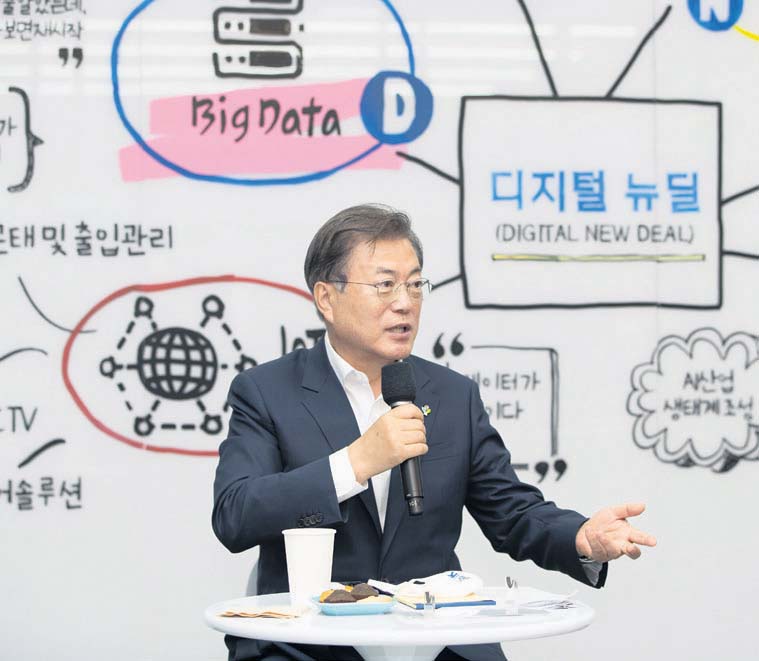Trends and Challenges in Korean Digital Humanities
The application of digital technology to humanities research has been taking place in South Korea for the past two decades. The building of the “Joseon Culture Electronic Atlas” in 2004 and “The Veritable Records of the Joseon Dynasty DB” in 2006, which aimed to expand the outreach of Korean studies using web technology, are the representative examples of Korean Digital Humanities in its seminal stage. Computer technology had been used in South Korea since the 1980s to support humanities research, but, ironically, it was the financial crisis of 1997 that provided the impetus for the “digital turn in the humanities.” Faced with the task of rebuilding a tattered economy and providing a new strategy for economic development, the Kim Dae Jung government initiated large-scale public employment schemes and promoted a strategy of nurturing Cultural Technology (CT). The former provided the human resources that helped lay the foundation for Digital Humanities in South Korea. The latter supported the establishment of a new research trend that the paved the way for “digital content” production in the field of the humanities.
It is against this historical backdrop that the distinctive trajectory of Korean Digital Humanities must be understood. In South Korea, the discourse on Digital Humanities began in the 2010s, but discussions were mainly focused on the production of digital content. It is only more recently, with the active introduction of overseas case studies and the accumulation of domestic case studies, that the wider community of humanities-based researchers (and not just those involved in producing digital content) has begun to show greater interest in Digital Humanities.
More recently, the “Digital New Deal” initiative of the current Moon Jae In government (represented by the “Digital Dam” project) has played a significant role in escalating interest on Digital Humanities amongst researchers. The government agenda for the transition to a data-centered society has influenced humanities research policies as well as the research environment. For example, the funding scheme outlines of the National Research Foundation (NRF) of Korea, the main funding body for humanities research, have begun to place importance on the application of digital technologies or data related methodologies. From the standpoint of researchers who depend on state funding, such a government stance cannot be ignored.

Fig. 1: South Korean President Moon Jae In speaking about the “Digital New Deal” initiative. Image courtesy of the Presidential Security Service, Republic of Korea.
The importance placed on coding and programming within South Korean society has also played an important role in ushering in the digital turn in the humanities. The new generation of researchers, well-versed in computer and web technology, has adapted well to the digital environment, actively applying digital approaches to humanities-related research. In fact, there is a growing perception among young researchers that academic activities should expand to include data construction, analysis, and visualization, which require interdisciplinary and convergent approaches, rather than being limited to traditional methods of publication. Such a trend can also be consistently observed in the workshops, colloquiums, and seminars of recent years.
The transition from “Humanities” to “Digital Humanities” should not be regarded simply as a change in research methodology. In terms of the technological environment, it entails a transition from analog to digital; in terms of communication media, it entails a transition from books to data; in terms of the actor, it entails a transition from an approach dominated by a human actor to one involving collaboration with non-human actors. In this sense, the expansion of interest in digital humanities can be understood as part of a greater cultural movement, in which changes in the technological environment have brought about social, economic, and political changes, which in turn have transformed the academic environment. Just as a typhoon cannot be recognized when standing amidst the deceptive calm of its eye, we may unknowingly be in the midst of a great turning point.
The disciplines of the humanities are also experiencing a crucial period of transition in South Korea, and currently there is more bad news than good news. The merging of humanities-related departments due to a decrease in the university population, the reduction of government financial support, a decrease in academic posts, and society’s general lack of interest in the humanities are collectively seen to represent a “crises in the humanities.” Fortunately, Digital Humanities can play a crucial role in fostering a new humanities research culture by absorbing the social changes caused by the technological environment, which may also act to increase the resilience of the current academic environment. As such, it is hoped that South Korea will also witness, in the near future, the establishment of an institution similar to that of the Office of Digital Humanities (ODH) under the National Humanities Foundation (NEH) of the USA, which can take charge of the management and development of the field of Digital Humanities.
Indeed, although the Korean Association for Digital Humanities (KADH), established in 2015, has spearheaded the dissemination of Digital Humanities research through various activities, it is nearly impossible to expect such a research organization to undertake a more active role when long-term government assistance is absent. In particular, a government-sponsored institution that can support and centrally manage the numerous small-scale Digital Humanities projects that are centered around universities, institutions, and research groups across the country, and which can also be consulted when developing the results of Digital Humanities research for educational or commercial purposes, is urgently required. It is only when the government implements policies that represent a full-fledged move to improve the overall situation of humanities research in South Korea – rather than those merely focused on supporting a small number of digital humanities research groups – that Korean Digital Humanities can hope for a sustainable future.
Intae Ryu, Post-doctoral Fellow, Sungkyunkwan University, ryuintae@gmail.com